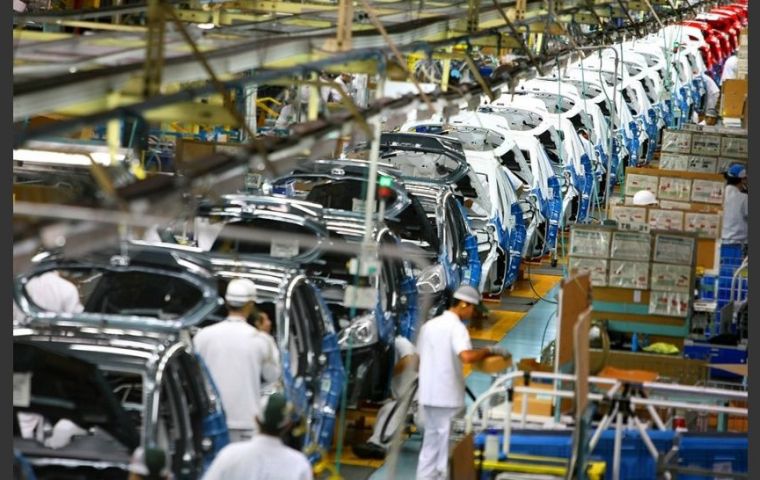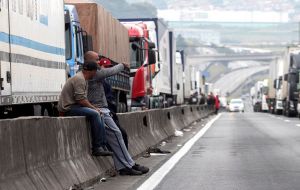MercoPress. South Atlantic News Agency
Brazil industrial production plummets in May on truckers strike
 Production fell 10.9% from April, government statistics agency IBGE said on Wednesday, the largest decline since December 2008
Production fell 10.9% from April, government statistics agency IBGE said on Wednesday, the largest decline since December 2008  Truckers protesting high diesel prices blocked major highways and forced farmers to dump milk and cull poultry, in an action that shocked the economy
Truckers protesting high diesel prices blocked major highways and forced farmers to dump milk and cull poultry, in an action that shocked the economy Industrial output in Brazil plummeted in May at the sharpest pace in a decade, highlighting the deep impact of a nationwide truckers' strike in the final weeks of that month. Production fell 10.9% from April, government statistics agency IBGE said on Wednesday, the largest decline since December 2008.
Truckers protesting high diesel prices blocked major highways and forced farmers to dump milk and cull poultry, in an action that reverberated throughout Latin America's largest economy.
Losses were widespread, with 24 out of the 26 sectors tracked by IBGE in negative territory. The only two categories in the black were coke, oil derivatives and bio-fuels; and the extractive industry. Both segments barely rely on highways for transportation.
“The strikes disrupted the production process itself, through the supply of base materials as well as logistics of output,” IBGE economist André Macedo said.
Industrial output fell 6.6% from the year before.
The central bank last week slashed its 2018 gross domestic product growth forecast in the wake of the strike. Inflation has soared back to the official target range as a result of product shortages, while the nation's trade surplus sank.
It is not yet clear, however, how long-lasting that impact will be. The central bank has stressed in recent communication that increased uncertainty has made it harder to separate short-term hits from fundamental changes to the economic outlook, which kept it from signaling future interest rate moves at its last policy meeting.
The bank, which last month kept the benchmark Selic rate at an all-time low of 6.5%, has pointed to a “temporary” effect of the protests that has slowed down Brazil's recovery from its deepest recession in a decade.




Top Comments
Disclaimer & comment rulesCommenting for this story is now closed.
If you have a Facebook account, become a fan and comment on our Facebook Page!